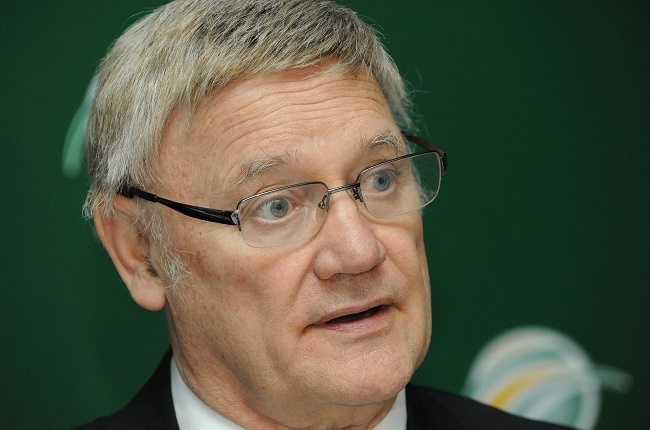


Former CSA president Willie Basson
- Former CSA president Dr Willie Basson believes there’s no reason for the organisation to revisit the Nicholson report to seek guidance on governance reforms.
- That’s because CSA in 2013, with Basson at the helm, already implemented those recommendations.
- Instead, the embattled federation’s biggest challenge is that it’s plagued by unsuitable candidates being in decision-making positions.
Former Cricket South Africa (CSA) president Dr Willie Basson is stumped by the embattled organisation using the review of “outstanding matters recommended by the Nicholson Commission” as one of the main reasons for postponing its annual general meeting (AGM).
The Commission of Inquiry, established in 2011 by then sports minister Fikile Mbalula to address governance issues arising from the IPL bonus scandal, was firm in advocating for a streamlined CSA board led by independent directors.
Basson, installed in an interim capacity to implement the changes, had to compromise on the make-up of the board due to pressure from umbrella body Sascoc but states virtually all the other recommendations have been in place since early 2013.
“This situation has, unfortunately, been an indictment yet again on the quality of the decision-making within CSA – and this is a problem across the board in South African sport,” he told Sport24.
“Almost all of the Nicholson recommendations were implemented and executed. And for about five years, things went pretty well at CSA.
“But now, because there’s an imbalance between the non-independent and independent directors (currently CSA only has two of those five positions filled) and an apparent lack of expertise, the board have nothing to fall back on in terms of guidance. They are back at square one and now they want to run back to the Nicholson report?
“It’s been implemented. There are various implementation reports that were handed to the sports ministry. It’s on paper. It’s done.”
However, Basson – a transformation expert and secretariat of the Eminent Persons Group – believes that CSA’s safeguards on governance might be lacking.
“There isn’t a checks-and-balances system in place to be honest,” he said.
“Another challenge is you have a members forum consisting of all 12 affiliate presidents but only seven of them are elected onto the board. That dynamic remains a source of tension and even conflict.”
While the Proteas in the past have, rather uncannily, somehow managed to shrug off the off-field dramas, this week’s statement from 30 of the country’s leading players condemning the state of CSA’s affairs is indicative of the seriousness of its problems.
And when players start getting involved, things can snowball.
“The extent of their dissatisfaction will merely increase. It’s a toxic dynamic because instead of keeping a code stable and even growing it, you’re managing conflicts,” said Basson.
What can be done to stop the rot?
“Go back to the implementation reports. Have a look at what predecessors did. There’s no reason to revisit the Nicholson report.
“Also it’s important to develop a democratic process in your decision-making body. Make sure the cornerstone of your board is expertise, to ensure sound strategic and operational direction. It’s also important to reassure your affiliate presidents that they are stakeholders.
“Like a business, they can hold the board to account for their management but they also need to allow the board the space to first conduct its affairs.”

